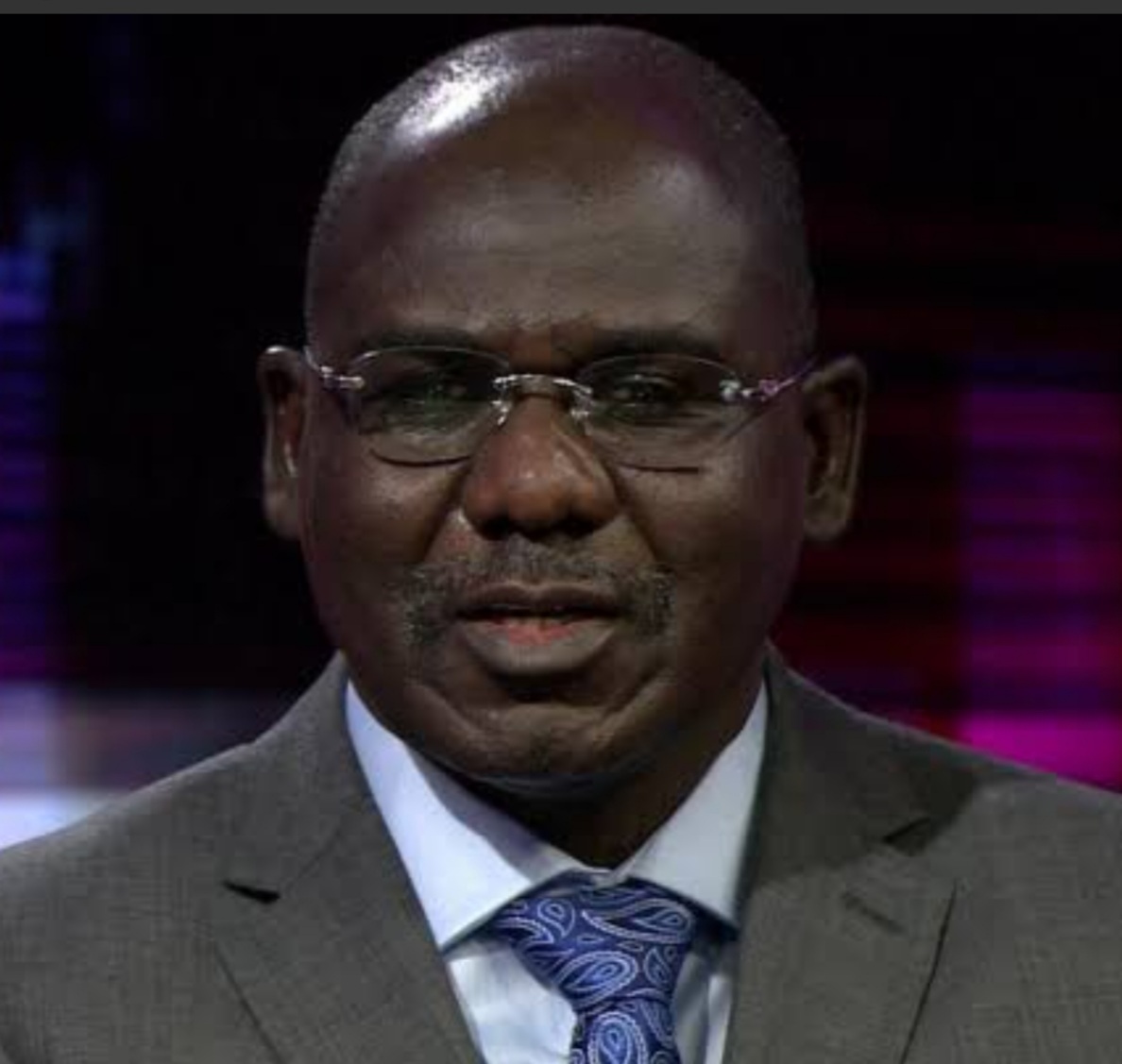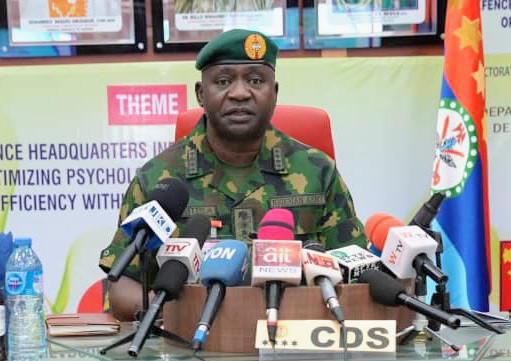273 total views today
By Sumaila Ogbaje
The Chief of Defence Staff (CDS), Gen. Christopher Musa, says the military is more determined than ever to go after all terrorists to restore peace and stability in the country.
Musa gave the assurance at the Defence Headquarters Psychological Operations Workshop with the theme “Defence Headquarters Influence Operations: Optimising Psychological Operations for Efficiency in a Joint Environment” on Wednesday in Abuja.
He said that there was a need for enhanced non-kinetic activities, particularly psychological operations, to shape the environment in favour of the ultimate aim of all on-going operations.
According to him, the workshop is timely, given the evolving nature of modern warfare and the increasing importance of influencing perceptions, attitudes, and behaviours.
He said the nation had in recent times, grappled with complex security challenges and threats which had brought to the fore some occurrences that threaten the peace and security of the nation.
These, he added, had undoubtedly continued to test the resolve of the Nigerian people and the capacity of security agencies to discharge their constitutional roles.
The CDS said the tactics of the non-state actor of indiscriminate violence against innocent citizens had continually created fear and despair amongst the populace.
He said the prevalent threats in Nigeria’s internal security landscape will not be tackled through kinetic operations alone, due largely to the continuous mutation in the nature and character of the threats.
“This situation therefore presumes that the threat has since gone beyond purely traditional military actions but requires a combination of robust and well-coordinated non-kinetic efforts by all the stakeholders to support our kinetic actions.
“From the kinetic perspective, troops have continued to deny insurgents/terrorists freedom of action despite isolated attacks on troops’ locations.
“With the recent changes in some of the commands in the theatres, we expect new strategies to further destroy the capacities of the terrorists to attack troops’ locations and isolated communities.
“We are more than ever determined to go after all the non-state actors to restore peace and stability in the country.
“In the same vein, we need non-kinetic activities, particularly psychological operations, to shape the environment in favour of the ultimate aim of all on-going operations,” he said.
The Director-General, Federal Radio Corporation of Nigeria (FRCN), Dr Mohammed Bulama urged the military and other security agencies to find ways to end the killings within the country and restore peace.
Bulama said the solutions and resolutions from the workshop would contribute in entrenching peace and stability in the country
He said that Nigeria had over the past decade, faced and still facing one of the greatest security challenges in its history.
“As much as I am aware that such security threats are usually difficult to tackle, I have never doubted the capabilities of the Nigerian armed forces and all government security and intelligence agencies in eradicating these security challenges.
“This is evident in the successes that have been recorded so far in the various theatres of operations across the country.
“In recent times, however, the news of insecurity within the nation’s internal security landscape has made headlines in most of our print and electronic media outlets, especially the social media.
“I must therefore observe that the armed forces has done and is still doing a lot to stem the rising insecurity across the country, despite its limited resources,” he said.
Bulama called for timely but workable solutions that convinced Nigerians that the government was committed to its primary responsibility of protecting the lives and property of law-abiding citizens.
He said the federal government has so far demonstrated strong political will to end the menace of insecurity in the country.
The FRCN boss charged the military to counter radicalisation, win hearts and minds in conflict zones and counter misinformation by utilising AI, social media, and analytics to monitor sentiment, track propaganda, and measure impact. (NAN)
Edited by Sadiya Hamza






